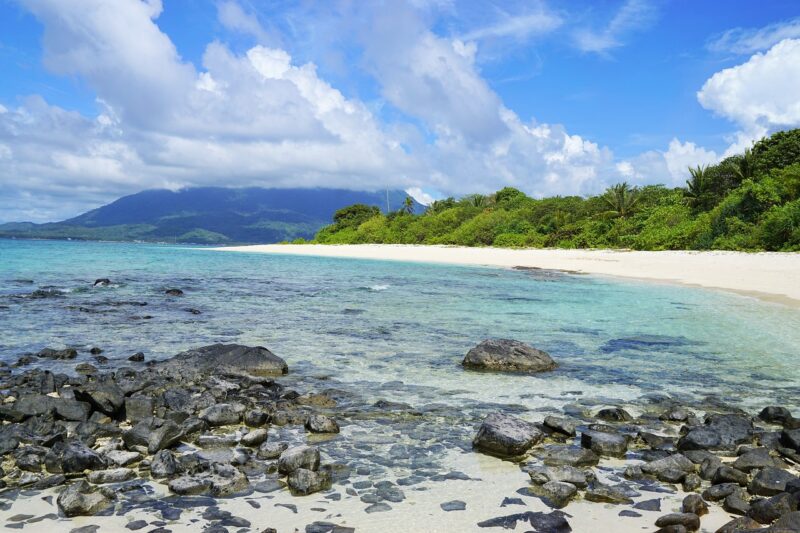The History of Island Castaways and the Fascinating Stories of Their Survival
November 16, 2024

Throughout history, the concept of being stranded on a deserted island has captivated the human imagination. From classic literature to modern news stories, tales of survival against all odds offer both inspiration and a glimpse into the resilience of the human spirit. Whether due to shipwrecks, plane crashes, or unforeseen circumstances, countless individuals have found themselves cast away on isolated shores. In this article, we delve into the history of island castaways and explore some of the most fascinating survival stories that have emerged from these harrowing experiences.
1. The Origins of Island Castaway Narratives
The theme of being stranded on an island can be traced back to ancient literature. One of the earliest and most notable examples is Homer’s “Odyssey,” where Odysseus faces numerous challenges, including being held captive on the island of Ogygia by the nymph Calypso. This tale of adventure and survival has inspired countless adaptations.
As maritime exploration expanded, so did accounts of castaways. The 17th and 18th centuries saw a surge in shipwrecks due to harsh weather and navigational errors, leading to a broader collection of real-life survival stories. Castaway narratives became a popular genre, highlighting themes of resilience, resourcefulness, and the struggle for survival in the wild.
2. Notable Historical Castaways
A few remarkable historical castaways have made headlines, with stories that continue to fascinate readers:
- Alexander Selkirk (1704-1721): Often considered the inspiration for Robinson Crusoe, Selkirk was a Scottish sailor who was marooned on an uninhabited island off the coast of Chile for over four years. His survival relied on hunting goats and gathering food, all while facing the challenges of isolation. Selkirk’s story epitomizes the struggle of humans to adapt and thrive in solitude.
- The Essex Sailors (1820): The whaling ship Essex was sunk by a sperm whale, leaving its crew stranded in the Pacific Ocean. The survivors faced harrowing challenges, resorting to cannibalism to stay alive as they drifted in small boats for over 90 days, and their story highlights extreme conditions and the dark side of survival instinct.
- Poon Lim (1942): After a Japanese torpedo sank the British ship SS Benlomond during World War II, Lim survived alone on a raft for 133 days in the Atlantic Ocean. He relied on fishing, collecting rainwater, and salvaging items from the sea to survive. His incredible tale of survival against the odds earned him a place in the Guinness World Records.
3. The Psychological Impact of Isolation
Surviving as a castaway is not just a physical challenge; it also poses significant psychological hurdles. The effects of prolonged isolation can include stress, anxiety, and emotional turmoil. Survivors have often reported hallucinations, strange behaviors, and even a profound sense of time distortion.
Survival experts emphasize the importance of mental resilience. Techniques such as setting daily goals, maintaining a routine, and finding solace in creativity (like keeping a journal) can greatly help in coping with the psychological burdens of solitude. The survival journeys of those stranded on islands reveal a twofold struggle: one against the elements and the other against the mind.
4. Modern-Day Castaways: Survival in the 21st Century
In contemporary times, there have still been individuals who have become castaways, highlighting that this historical narrative persists. The rise of digital communication has altered how we perceive and report these stories, but the core of survival remains unchanged.
Notable modern castaway stories include:
- The Story of the Huot family (2000): This Canadian family survived a canoeing accident near a remote island in the freezing waters of Canada. They used their survival training to make shelter, fish, and signal for help, emphasizing the importance of preparation before venturing into the wilderness.
- Thirteen days lost at sea (2014): Three fishermen from New York survived after their boat capsized, floating on their overturned vessel until rescue teams found them. Their survival relied on their ability to stay together, manage resources, and maintain hope throughout the ordeal.
In each of these narratives, survival hinged not just on basic necessities but also on the will to overcome despair and helplessness, showing that human strength endures through adversity.
5. Lessons from Island Survival Stories
From studying the historical and modern survival tales, several invaluable lessons emerge that can be applied beyond the realm of survival itself:
- Preparation is Essential: Understanding the importance of emergency preparedness and survival kits can equip individuals to handle unforeseen circumstances.
- Mental Strength Matters: Cultivating mental resilience and adaptability can be as vital as physical strength in facing challenges.
- Cooperation and Communication: Working as a team, sharing responsibilities, and maintaining clear communication improve chances of survival in any crisis.
These lessons resonate across various aspects of life, teaching us adaptability, preparedness, and the importance of mental fortitude.
Conclusion: The Enduring Fascination of Castaway Stories
The stories of island castaways have endured throughout history for their compelling narratives of survival and human tenacity. They offer not merely accounts of hardship, but also serve as reflections on human resilience, hope, and the lengths we go to survive.
As we continue to explore these narratives, we gain insights into our capabilities as individuals and communities, proving that the legacy of castaways will remain a powerful testament to the human spirit. When faced with the unimaginable, it’s the shared stories of survival and adaptation that inspire generations to come.








